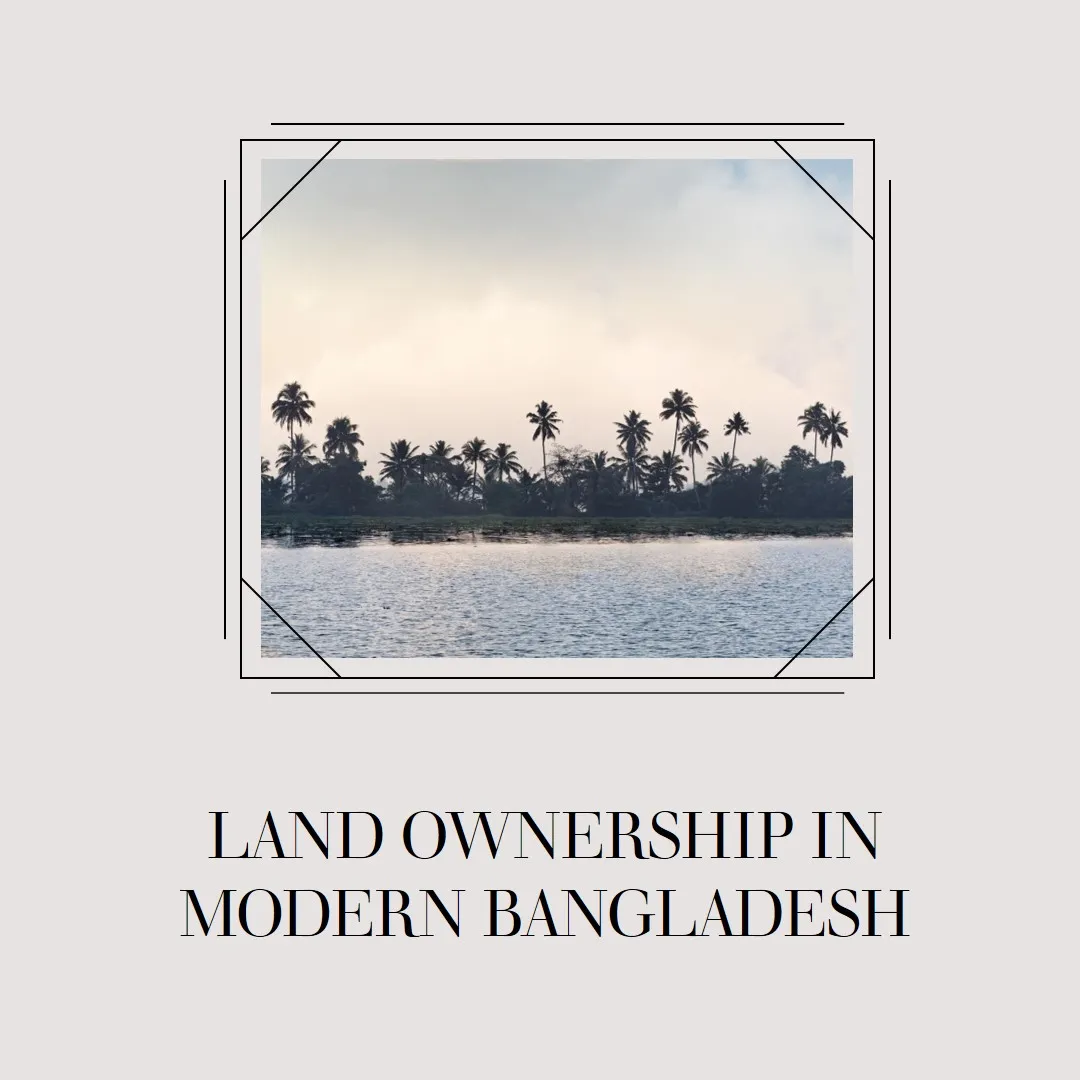
OWNERSHIP OF LAND IN THE MODERN PERIOD: DOES BANGLADESH HAVE PRIVATE OWNERSHIP?
1. Constitutional provisions regarding ownership of land
- Article 13 talks people should own or control things that are used to make and distribute products. When it says people, it means ownership can take three forms:
- State ownership: This means the government owns things on behalf of all the people. It will own big important parts of the economy through government-owned companies.
- Co-operative ownership: This means groups like farmer groups or worker groups own things together through co-operatives. The groups own the things for the benefit of their members. The law can decide the limits of this ownership.
- Private ownership: This means individuals can own things privately. But the law can also decide the limits of this private ownership. Even for private owners, the government will make sure to collect money like taxes. And it will protect the safety and rights of private owners.
- Again, Article 42 talks about every citizen’s right to own property. It says:
- Citizens can buy, keep, sell, or dispose of property according to any rules made by law. Property can only be taken away or owned by the government if a law allows it.Any law taking away property must provide compensation. It must either state how much compensation will be given or explain how compensation will be decided and paid. But no one can challenge this law in court just because they think the compensation is not enough. From this, we understand that citizens can exercise their right to own property. But this right is not without limits. The government can make some rules or restrictions through laws over time. These restrictions include banning or stopping some types of property rights. If any restriction takes away property without a law for acquiring or nationalizing it, then that restriction breaks Article 42.
- Further, Article 143 talks about what types of property belongs to the country (Republic of Bangladesh). It says:
- All minerals, valuable things underground any land, minerals/things under the sea within territorial waters or continental shelf belong to Bangladesh.Parliament can make laws to define boundaries of Bangladesh territory, territorial waters and continental shelf.
- Article 144 talks about the powers of the Executive authority (government). It says the government has powers related to:
- Buying, selling, mortgaging (using as collateral) and disposing property running any business or tradeMaking contracts
Section 92 says the raiyat’s ownership or interest in land gets cancelled (extinguished) in these situations: (a) If he dies without a legal heir to inherit the land. (b) If he voluntarily surrenders the land by giving proper notice to authorities. (c) If he abandons the land for 3 years without paying rent or cultivating the land himself or with family or hired help. (d) If the land is inherited by someone who is not a real farmer, and he doesn’t farm the land himself or with family/help for 5 years without a valid reason. Rule 6 also supports this by saying the land ownership gets cancelled in these situations. So in reality, farmers can lose ownership of their land if they don’t use it for farming for some time or don’t have legal heirs. The ownership is not passed through generations freely. So we can say private ownership of land in its full form may not really exist for farmers in Bangladesh according to these laws. The government has powers to take back uncultivated land. The raiyat (farmer) cannot be considered the real owner of land according to the State Acquisition and Tenancy Act, 1950 for these reasons:- He cannot freely leave the land whenever he wants, as he risks losing his land rights.If he doesn’t pay rent, he also loses land rights.As per the Constitution, he has no rights to minerals or resources underground.The government can acquire land for public purposes by paying compensation, following the law.






